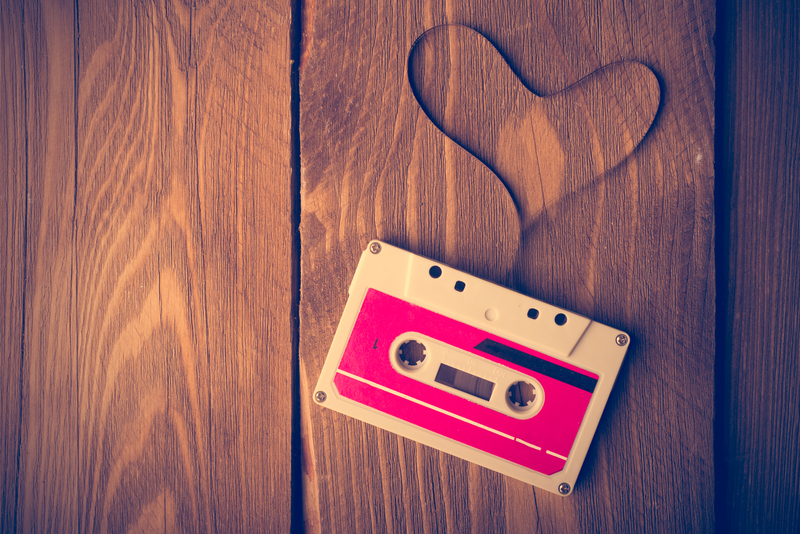How and where to safely recycle used chargers
Posted on 25/09/2025
How and Where to Safely Recycle Used Chargers
Used chargers are one of the most common types of electronic waste generated in modern households and workplaces. With the rapid advancement in technology and the frequent upgrading of electronic devices, millions of old and unused phone chargers, laptop adapters, and other power accessories are discarded each year. While these might seem harmless, their improper disposal poses serious environmental and health risks. In this comprehensive guide, you will discover how and where to recycle used chargers safely, the importance of doing so, and tips for proper charger recycling.
Why It's Important to Recycle Old Chargers
Chargers contain various components, such as metals, plastics, and sometimes even hazardous materials. When thrown into the trash, they often end up in landfills, leading to several issues:
- Environmental pollution: Chemicals from charger components can leak into soil and water, polluting the environment.
- Resource wastage: Chargers contain metals such as copper, aluminum, and sometimes gold. These metals can be recovered and reused, reducing the need for mining new materials.
- Fire hazards: Improper disposal can create fire risks, especially with broken or damaged chargers.
- Increased electronic waste: E-waste is one of the world's fastest-growing waste streams. Chargers contribute to the increasing problem of e-waste management.
By learning where to recycle used chargers and how to recycle old chargers safely, you play a crucial role in protecting both the environment and public health.

Understanding What Can Be Recycled
Before you head to the nearest recycling point, it's important to understand which chargers can be recycled. Generally, the following types are widely accepted:
- Mobile phone chargers
- Laptop chargers and adapters
- USB charging cables
- Tablet and e-reader chargers
- Power bricks for gaming consoles
- Old power adaptors for small electronic devices
Note: Some recycling centers might have restrictions on charger types or require removal of batteries (if any). Always check with your chosen recycling point for *specific requirements*.
How to Safely Prepare Used Chargers for Recycling
Proper preparation of chargers for recycling is essential. Follow these simple steps:
- Disconnect and untangle: Unplug chargers from all devices and remove any attachments.
- Remove batteries: If your charger includes a built-in battery, you may need to remove and recycle it separately, according to local guidelines.
- Bundle wires: Use twist-ties or a rubber band to neatly tie up cords, reducing the risk of tangling and ensuring easier handling during sorting.
- Clean off debris: Wipe away dust and dirt. This helps recycling centers process materials more efficiently.
When dealing with damaged or frayed chargers, make sure to handle them with care to avoid electric shocks or injury. If the device is leaking or appears hazardous, consult your local e-waste facility for special disposal instructions.
Where You Can Recycle Used Chargers
Now that you know why and how to prepare chargers for recycling, let's dive into where you can recycle your used chargers. Below are some of the best and most convenient options:
1. Local Electronics or E-Waste Recycling Centers
Many cities and towns have dedicated e-waste recycling facilities that accept used electronic accessories, including chargers. These centers ensure that your discarded chargers are either refurbished, broken down for parts, or recycled for their raw materials.
- How to find: Search online for "e-waste recycling center near me."
- Check collection days: Some areas offer special collection events for electronics.
- Verify accepted items: Always double-check which types of chargers and cables are accepted.
2. Retail Drop-Off Programs
Major retailers and electronics stores often offer in-store electronics recycling programs. Companies such as Best Buy, Staples, and Home Depot (in various countries) have drop-off bins for small electronics, including used chargers and cables.
- How it works: Bring your old charger to a participating store and deposit it in the designated bin.
- Additional perks: Occasionally, retailers offer discounts or rewards for turning in old electronics.
3. Manufacturer Take-Back Programs
Some electronics manufacturers operate take-back or mail-in programs for their products, including chargers and accessories. This ensures that the components are recycled properly, often by the original maker.
- Brands participating: Apple, Samsung, Dell, and HP all have official recycling options.
- How to use: Check the manufacturer's website for instructions. You might be able to mail the charger in a prepaid envelope.
4. Municipal Hazardous Waste Collection Events
Many cities organize annual or seasonal household hazardous waste collection events. During these events, residents can bring in a variety of unwanted electronics, including chargers, for safe disposal.
- How to participate: Consult your city or county's website for event dates, locations, and accepted items.
- What to bring: Be clear about what types of chargers and cables you are disposing of.
5. Charity and Donation Centers
If your used charger is still functional, consider donating it to a local charity, school, or organization. Many groups accept working chargers to either reuse or redistribute to those in need.
- How to donate: Contact local shelters, community centers, or schools.
- Check requirements: Ensure the charger is in good working order and meets the organization's needs.
6. Specialized Mail-In Recycling Services
There are now several companies that specialize in mail-in recycling of small electronics and accessories. These services are especially handy if you do not have nearby drop-off points.
- Popular services include: TerraCycle, Call2Recycle, and EcoATM.
- How it works: Package your used chargers according to the company's instructions and mail them for proper recycling.
Tips for Responsible Charger Disposal
To ensure the safest and most environmentally-friendly recycling of your used chargers, keep in mind these important tips:
- Avoid general trash bins: Never throw chargers in regular garbage.
- Keep data safe: Some modern chargers have built-in storage or apps. Wipe all data before recycling.
- Separate by type: Bundle similar types of chargers or cables together.
- Don't mix with batteries: Recycle batteries, if any, via specialized collection points.
The Environmental Benefits of Recycling Used Chargers
By recycling your old chargers responsibly, you are contributing to a cleaner and healthier environment in several ways:
- Reducing landfill waste: Fewer items end up in landfill sites, which helps conserve space and cut down on pollution.
- Recovering valuable resources: Metals and plastics can be reused in the production of new electronics.
- Preventing pollution: Proper charger recycling prevents hazardous chemicals from leaching into soil and water supplies.
- Promoting a circular economy: Recycling extends the life of finite resources and supports sustainable production chains.
The Social Impact
Recycling used chargers can support social initiatives as well. Donation and refurbishing programs help bridge the digital divide for underserved communities. They offer access to technology for schools, non-profits, and individuals who might not afford new equipment.
What Happens to Recycled Chargers?
When you recycle a charger, it goes through several stages:
- Sorting: The charger is sorted by material type (metals, plastics, etc.).
- Disassembly: Components like the cable, plug, and transformer are separated.
- Processing: Metals are extracted and purified, plastics are shredded and repurposed, and hazardous materials are disposed of safely.
- Manufacturing: Recovered materials are used in the production of new products, reducing the demand for raw materials.
This process helps close the loop between product consumption and responsible waste management, creating a more sustainable cycle for electronics.
Recycling Used Chargers Around the World
United States
The US has a robust network of e-waste recycling programs. Local waste management facilities, retailer drop-offs (like Best Buy and Staples), and many municipalities offer recycling options for small electronics. Several states mandate e-waste recycling and include chargers in their legislation.
Europe
The European Union has stringent Waste Electrical and Electronic Equipment (WEEE) directives, requiring both manufacturers and retailers to provide take-back and recycling services for electronic accessories, including used chargers.
Asia and Oceania
Countries like Australia, Japan, and South Korea have dedicated e-waste recycling initiatives. In developing countries, partnerships between local governments and tech companies are increasingly addressing the safe collection and recycling of chargers.
Innovative Solutions: Upcycling Old Chargers
Not all chargers need to be recycled immediately. If your old charger is functional, consider creative ways to upcycle before recycling:
- Home projects: Repurpose old cables into USB art or use them in electronics DIY kits.
- Spare backup: Keep one as a backup in your car, office, or travel bag.
- Community repair events: Donate usable chargers for use in tech repair or makerspace workshops.
Whenever possible, extend a charger's lifespan before recycling to further minimize electronic waste.

Frequently Asked Questions on Recycling Chargers
Can charging cables be recycled together with chargers?
Yes, most e-waste recycling centers accept both cables and chargers together. However, separating them makes processing easier.
Are there any chargers that cannot be recycled?
Rarely, but very old or specialty chargers may contain materials that require specific handling. Always check with your local recycler.
Is it safe to mail chargers for recycling?
*Yes*, as long as the charger is not leaking or damaged, and packaging follows the mail-in service's instructions.
What should I do if my charger has a built-in battery?
Remove the battery if possible and recycle it separately. If not, bring it to a center equipped to handle such items.
Conclusion: Make Safe Charger Recycling a Habit
Properly disposing of and recycling old chargers is a simple but impactful way to safeguard the environment and conserve precious resources. By following these guidelines on how and where to recycle used chargers, you ensure that hazardous materials are kept out of landfills, valuable materials are reclaimed, and less waste is created for future generations. Whether you drop off at a store, use a mail-in service, or participate in a municipal program, your responsible action truly makes a difference.
Remember: The next time you upgrade your device and are left with an old charger, choose the eco-friendly option--recycle it safely and responsibly!

 020 3795 6999
020 3795 6999 020 3795 6999
020 3795 6999




 House clearance
House clearance Rubbish collection
Rubbish collection Here at Rubbish Junk we give you the unique opportunity to keep your home free of clutter at prices that will constantly please you. Other domestic clearance companies in London might be...
Here at Rubbish Junk we give you the unique opportunity to keep your home free of clutter at prices that will constantly please you. Other domestic clearance companies in London might be... Rubbish Junk knows what to do to keep your home rubbish-free. When you are facing a situation that requires clearance services,...
Rubbish Junk knows what to do to keep your home rubbish-free. When you are facing a situation that requires clearance services,...



